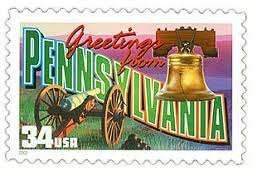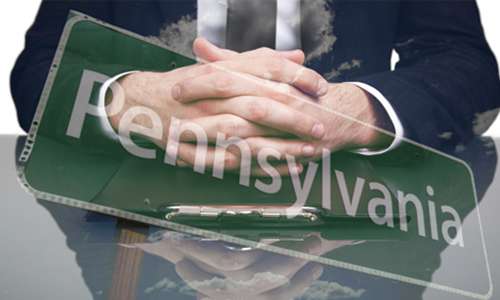Pennsylvania Online Gaming Bill Active Amid State Budget Talks
Promises made last year by pro-gaming pols in Pennsylvania that online gambling legislation would get a full legislative hearing in 2016 appear to have been on the mark, as new life has been breathed into State Rep. John Payne’s online-poker-authorizing House Bill 649. HB 649 may well come up for a full PA Assembly vote in June — if not as early as this week.
Payne’s pro-poker legislation, which was introduced in February of 2015 and which easily passed through Payne’s Assembly Gaming Oversight Committee last November, is one of several possible revenue-producing measures which are receiving extra consideration as the Keystone State struggles with a potentially hefty budget shortfall.
 The 2016-17 budget submitted by PA Governor Tom Wolf, if accepted, would produce an estimated $1.8-to-$2.3-billion deficit, leaving the state’s lawmakers searching for ways to either trim spending or open up new revenue streams. Wolf’s total budget came in at more than $33 billion, including spending hikes on needy areas such as education. The spending hikes in Wolf’s budget would, in Wolf’s vision, be paid for by tax hikes, but the state’s GOP has been against any such tax increase.
The 2016-17 budget submitted by PA Governor Tom Wolf, if accepted, would produce an estimated $1.8-to-$2.3-billion deficit, leaving the state’s lawmakers searching for ways to either trim spending or open up new revenue streams. Wolf’s total budget came in at more than $33 billion, including spending hikes on needy areas such as education. The spending hikes in Wolf’s budget would, in Wolf’s vision, be paid for by tax hikes, but the state’s GOP has been against any such tax increase.
And that’s what has opened the door for the renewed interest in online poker as a possible revenue source. Payne, HB 649’s primary sponsor, continues to toe the party line in promoting his online-poker bill over any form of a tax increase. As he stated last November, when his bill passed from committee, “Legalizing, regulating and taxing interactive gaming in Pennsylvania should be given due consideration before any broad-based tax increases.”
Still, Payne, who’s been the primary backer and sponsor of several online-gambling bills in the state, openly cautions that online poker and other forms of online gambling can’t come close to generating enough revenue to close a possible $2 billion budget shortfall. His revenue projections are more in the $300- to $400-million range, on an annual basis, and that’s even assuming full maturity of the envisioned online-poker market, which wouldn’t happen for years.
The money is important. But it’s also not the whole story. As Payne consistently states, it’s a two-for-one deal: Pennsylvania can reap those taxation benefits while providing a level of consumer protection that’s lacking for its citizens at present.
A recent editorial penned by the Poker Players Alliance’s state director for Pennsylvania, Judah Rosenstein, follows that tack, just as it adheres to the PPA’s lobbying approach in Pennsylvania to date. Rosenstein’s op-ed appears at PennLive, the online outlet of the state’s capital-city newspaper, the Harrisburg Patriot-News. Rosenstein even brings up, as has the PPA in recent times, the shambles of Lock Poker’s fraudulent demise in 2014 as evidence that poker players still play online, and that they still need protecting.
While most casual and unscientific polling in Pennsylvania has shown a majority of the state’s voters in favor of such regulation, it’s still not an easy sell, and the topic of online poker is being wrapped up and tied into debate over other forms of gambling. Pennsylvania’s legislators are looking into several different areas loosely phrased as “gambling expansion,” from DFS (daily fantasy sports) regulation to the possible legalization of VGTs (video gaming terminals).
The VGT issue in Pennsylvania, as Rosenstein duly notes, remains controversial enough that anything tied to it within a budget or regulatory measure might itself go down to defeat. That’s one of many possible scenarios that Payne’s HB 649 may face, if indeed it makes it into an omnibus budget measure, or, somewhat less likely in the short term, comes up as an independent or gambling-expansion-specific measure.
And then there’s the noise factor from the DFS side of the aisle, noise which continues to grab lawmakers’ attention ahead of other gambling matters. In some states, such as PA-neighboring New York, the DFS focus has drowned or diminished the attention that online-poker measures might otherwise receive.
Still, any consideration of an online-poker bill in a populous US state has to be good news. Pennsylvania remains on the short list of the next US states likely to authorize and regulate online-poker play, whether it happens this budget season or not.
What’s for sure is that the poker world will know for sure by the end of June. Pennsylvania’s lawmakers face a June 30th deadline by which time the state’s budget must be approved. If online poker is included, Pennsylvania might become that long-awaited fourth US state to give the go-ahead to the game.


















COMMENTS